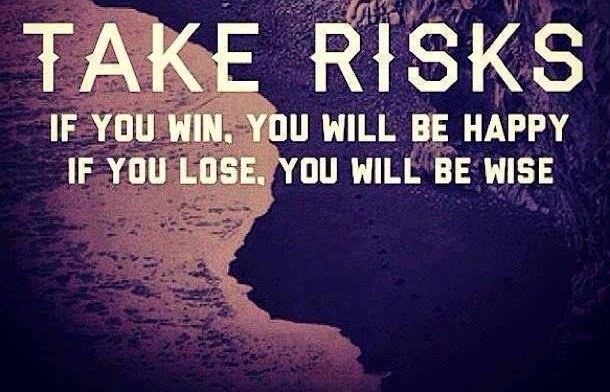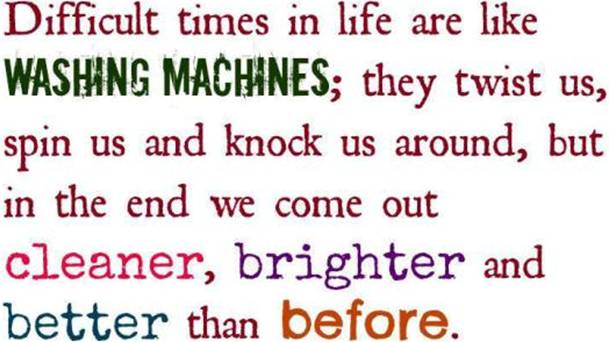Tough times never last but tough people do
Robert Schuller

Hard times are part of life. Even the happiest and most successful people go through hard times. When they describe their successes, they typically share the hard times and how they got over them. When you are in the middle of a difficult period, it feels all consuming, like end of the world. It feels… hard!
Unfortunately, negative thinking can make the hard times feel even harder. Think of it as driving a car. Good times are like driving in a flow, when all the traffic lights are green and it feels like you are cruising. Hard times feel like there is a stop sign or red light at every intersection, and driving seems to take forever, because the cars in front of you cannot move forward, while you are running late for an important meeting.
When your thinking is negative, it feels like you are driving… backwards.
Naturally, difficulties and hard times throw us into the primitive brain. In this mode, we are under a lot of pressure and since we use the primitive brain, we are not creative, cannot think complex thoughts, cannot solve problems, cannot improvise and cannot even have a healthy connection with others. Why? Because in the primitive brain we see snakes and lions and dangers and threats.
The best way to overcome this negativity is not to allow the chatter in our brain to convince us that we deserve the hardship and that the difficulties are a sign or a kind of punishment.
Feeling bad about feeling bad
Smooth seas do not make skillful sailors
African proverb
As a life coach, I help my clients distinguish between hard times and hard thinking. There are natural things that happen to us and make our life hard, but we need to know if our thinking is making it harder than it would be otherwise.
It is OK to feel bad because you have failed at something, but feeling bad about feeling bad only makes things worse and must be eliminated if we want our higher brain to kick in and start to find solutions.
Here is an example of the cycle of feeling bad about feeling bad. One of my parent coaching clients shared with me the frustration and bad feeling about her anger and frustration when her 6-year-old daughter threw a tantrum at school as they got out of the car in the morning. When I asked her about it, she did not even think there was an issue with her daughter putting pressure on her with her screams. She was convinced that she was not a good mother. She was upset about being upset when her daughter behaved like that, because “good mothers don’t get upset”.

Usually, when we feel that things are hard, we trigger thoughts that only increase the hardship. Some of them are “No one loves me”, “I can never do that”, “What would other say about me?”, “They will never trust me (again)”, “I will never get another chance”, “I am hopeless”, “I am such a loser”, “Why does it always happen to me?” and “What have I done wrong (to deserve this)?” Every such thought only takes us backwards. Since we have to stop at many red lights in our life, this kind of thinking just makes the wait seem a whole lot longer.
Mindfulness is the key
What we need to do to get over hard times is to minimize them. We cannot eliminate them but we can minimize them. Do you remember our traffic light? We cannot avoid red lights completely, but we can reduce the time we wait at red lights, and we can certainly reduce the impact of that time on our mood and our wellbeing.
First, you need to recognize the sentences you tell yourself when you are feeling that things are hard. Mindfulness is not to fight those thoughts, but to welcome them and write them down. In our mind, the thoughts are quick and temporary. If we write them down, we know what we need to do to get rid of.
This mindfulness activity is amazingly powerful. In order to “listen” to the chatter in our own mind, we think about the way we think. This is an NLP trick and it is very useful in changing thoughts. Usually, we are very aware of what we think but do not pay much attention to the way we do the thinking, what thought triggers other thoughts and how the whole mechanism of thinking works. If we want to change something in any mechanism, we must get to know its nuts and bolts. Writing helps us slow down and pay attention.

The thought pattern you discover with this mindfulness activity will show you your automatic thought pattern and what we need to do is get this “car” from “auto pilot” into a controlled ride.
Hard times mindfulness questions
Here is a list of questions you can ask yourself to stop yourself from reacting automatically during hard times. If you use them over 3-4 weeks, you will notice that what seemed hard before does not feel so hard anymore. Whenever you recognize you are have a hard time, ask yourself these questions:
- What do I want?
- Who loves me?
- What are my options?
- What can I do right now to change things?
- What am I grateful for?
- What is within my control?
- What will I think of this in five years? Will it matter in five years?
- Who can I spend time with that will make me feel better?
- Who do I know that got over a similar hard time and can inspire me or provide guidance?
- What have I achieved in my life so far?
- What is the worst thing that can happen?
- What have I learned so far from this?
If you take this list and answer it every time you think you are going through a difficult time, you will soon discover that hard times are not as hard anymore.
Try it! It works!
Easy times,
Ronit











